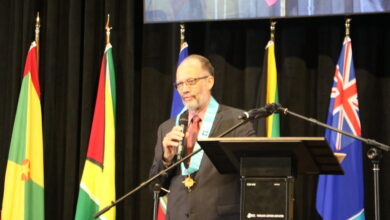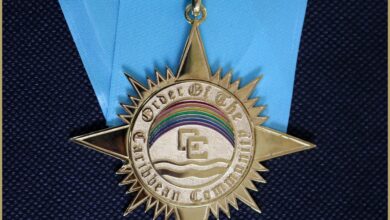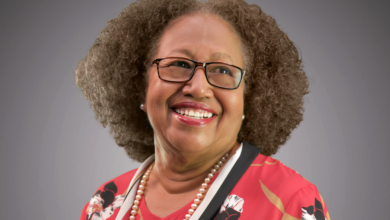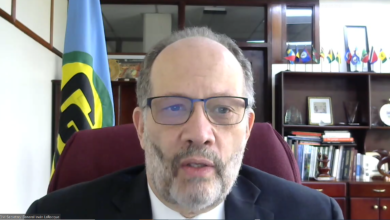I welcome this opportunity to greet teachers from across the Region, as you gather for your Biennial Conference.
The Region’s gradual shift toward knowledge-based economies, together with competition in the global market place and free movement of skilled labour, has placed new demands on our schools and educational institutions. Our Community needs a workforce that is healthy, competent, literate with strong basic skills and which can adapt to a rapidly changing labour market and technological world. CARICOM’s responses to these challenges are multifaceted and include instituting measures to improve the status of the teaching profession in our Region, through the professionalization of teaching.
The established professions have in common certain requirements that provide a level of comfort for their clients and assurance of a minimum standard of quality service. Professions such as law, medicine, engineering, architecture and accountancy, place emphasis on the quality of the practitioner, including new entrants and interns. These professions take collective responsibility for quality service and discharge this responsibility through a set of regulatory measures, licensing, registration and certification procedures and requirements that provide quality control.
The principal requirement in the effort to bring teaching more in line with the established professions is a more deliberate focus on the quality of teachers and the quality of their teaching. The teachers’ quality is a direct outcome of the quality and extent of their preparation and continuing professional education. This places the teacher educator at the centre of the teacher development process and underscores the fact that the quality chain begins and ends with the teacher educators.
In the various institutions across the Region, the Teaching Certificate, the Teaching Diploma, the Pre-service Bachelor in Education, and the Post-graduate Diploma in Education are all awarded on completion of a programme of initial professional studies. However, the programmes that lead to these initial professional qualifications differ significantly in content, duration and assessment criteria and are delivered at different academic levels. There is urgent need therefore, for standardization with respect to programmes that offer initial professional teaching qualifications. This assumes added importance, given the fact that provisions of the CARICOM Single Market and Economy (CSME) allow for the free movement of teachers.
The harmonisation of policy with respect to recruitment and selection, initial preparation, in-service professional development and certification of teachers in CARICOM, addresses the need for standardized procedures and practices. Teacher development drives the education system and directly influences the quality of its outcomes.
As the profession that services formal education, there needs to be more than passing assurance that persons who are functioning as teachers are fit for purpose; that they have been thoroughly prepared and certified to teach and they maintain performance standards. This assurance can be ascertained through the introduction of a set of measures that will enable the regulation and management of quality within a framework of professional teaching standards and, consequently, improve the status of the teaching profession. These quality control measures should include:
- teacher career policies and programmes that will stimulate the profession and provide incentives to attract the best prospective candidates;
- high standards for teacher education and teacher performance by establishing regional and national teaching councils to monitor, direct and advise on the development and maintenance of standards for teaching and teacher education;
- established entry-level professional standards for teachers;
- certification and licensing of teachers in accordance with established professional standards; and
- a Caribbean Code of Professional Ethics or Conduct and Registry of Teachers.
Inherent in the concept of universal early childhood, primary and secondary education, is the need for quality and equity in the provision of education. This implies the need to ensure that teachers are adequately prepared for classroom and school realities and that there is on-going support and provision for their professional growth and development.
We should all work towards the improvement of the teaching profession so as to achieve world class status for our Caribbean teachers, in both public and private schools, guided by the Regional Standards developed by CARICOM.
Please be assured of the continued support of the CARICOM Secretariat in the process of improving the status of the teaching profession and, by extension, improving the quality of education in all Member States.
You have all my good wishes for fruitful deliberations and a successful conference.




